
 The Particulars of the Picture
The Particulars of the Picture
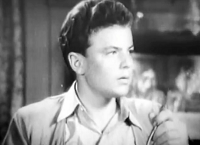 |
 |
 |
| Jimmie … Tommy Conlon |
Walt … Conrad Nagel |
Lou … Leila Hyams |
The Constant Woman: Hard to Peg
Constantly lying is a bad idea. I know, controversial opinion, but the way The Constant Woman sees it, those lies always end in a fiery cavalcade of pain and suffering– both figuratively and literally, as we’ll soon see.
Before the carnage, though, we’re introduced to a traveling group of actors. The manager, a klutzy but sincere Walt Underwood, is married to Marlene, his beautiful star actress. The two have a teenage son named Jimmie who reveres his mother with an Oedipal glee, upon which most of the film’s conflict hinges.
When Marlene receives a telegram from an old friend offering her a role on Broadway, she talks Walt into letting her go with ease. She’s not only a good actress, but a cunning manipulator, too. Though it’s never stated directly, we can tell it’s more than just an acting part that’s drawing her to New York.
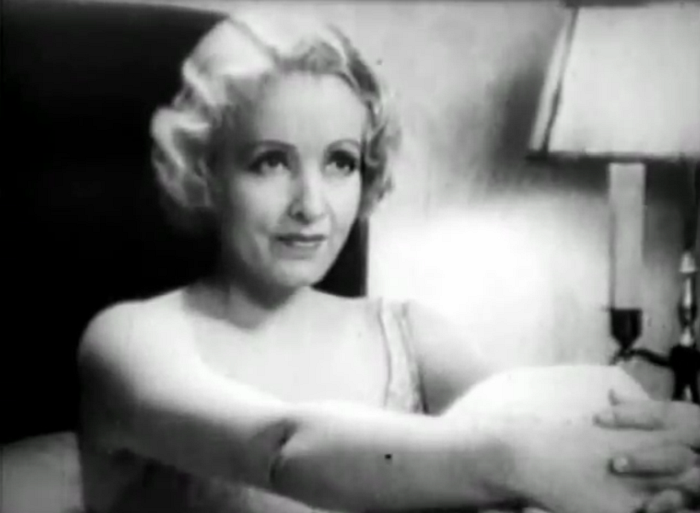
“Fantasizing about… acting. Yes. That’s it. Acting.”
A few weeks later, Walt and Jimmie decide to go visit, only to discover that one of the hotel rooms caught on fire when a patron left a cigarette lit and fell asleep. It was a male patron, who happened to be sharing a hotel room with… yeah, you guessed it.
Real quick, I wanted to point out one of the more enjoyable aspects of The Constant Woman, and that is that the dialogue is measured. It’s not blunt or obvious, and has enough room to allow the characters to come off as real, feeling people. Take how Walt attempts to break Jimmie the bad news about Marlene:
“You’ve got a stiff blow coming to you, son. I don’t know how to tell you. If I do it badly, forgive me.”
The movie is also really well directed. Despite this being an independent feature from the early 30’s, it still shines with some really good shots. Director Victor Schertzinger, who would later go on to make a pair of the Bing Crosby/Bob Hope Road to films, had a long career in silents before this. He manages to make great use of both tracking shots and long takes for the maximum dramatic potential, including quite a number that linger on characters as they struggle with their knowledge.
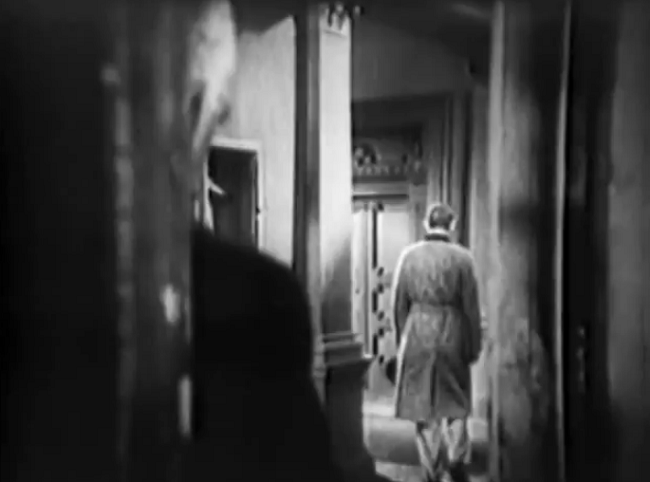
“Man, that guy is totally struggling with knowledge. Glad I’m not him!”
This sort of watching the characters actually think and reckon through their circumstances is rare, but what’s funny is that I’m just wrapping up the first act of the picture. If it’s been a sad chamber drama so far (Walt also soon learns from some discarded letters that Jimmie ain’t exactly his), be prepared for act two when we segue into slapstick and romantic comedy.
You see, there’s another woman, Lou. She’s had a torch for Walt for a while now, and while she watches as Walt realizes his entire life was a lie, her feelings only grow more intense. When Walt tries to drown himself in a bottle at the local speakeasy (attended to by a woman of ill-repute who had been apparently ill-reputing for a while), Lou rallies the touring company’s stagehands together and they have a silly brawl that engulfs the speakeasy. It’s surprisingly amusing, with the leader of the hands, Beef (Stanley Fields), doling out a great tough guy schtick.
With Walt back home, Lou stays up with him all night while he recovers. Jimmie mistakenly enters unaware of what’s happening, having never been told what his mom was really doing in New York as well as having his true lineage kept a secret. When he sees Lou in the room in a bathrobe, he assumes the worst: she’s seduced his grieving father only a few days after his mother’s passing.
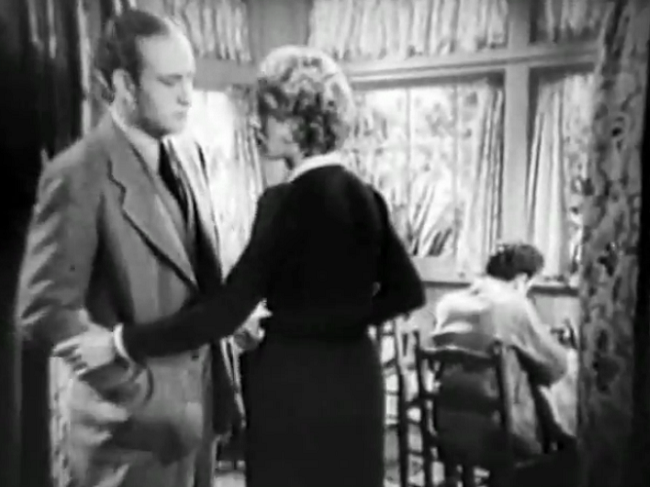
“Come on, Walt, let’s go in and figure out how to confuse our lies and make the situation worse.”
This leads us into the third act (yes, this 71 minute movie is still getting geared up). I won’t spoil the film’s actual ending, but since we’ve done drama, romance, and comedy, it must be time for action. That gives us an ending awash in flames as Jimmie runs away to the circus and arrives at the right time for a loose elephant to set the big top on fire, animals escaping, and a daring rescue.
I mean, how many Norma Shearer movies end with her wrestling a tiger? Not enough, I say.
The Constant Woman is an interesting oddity, a technically competent independent film that runs the gamut of genres but never feels disjointed or unapproachable. The only indication of its budget may be in a few flubbed lines that only add to the naturalism of the dialogue.
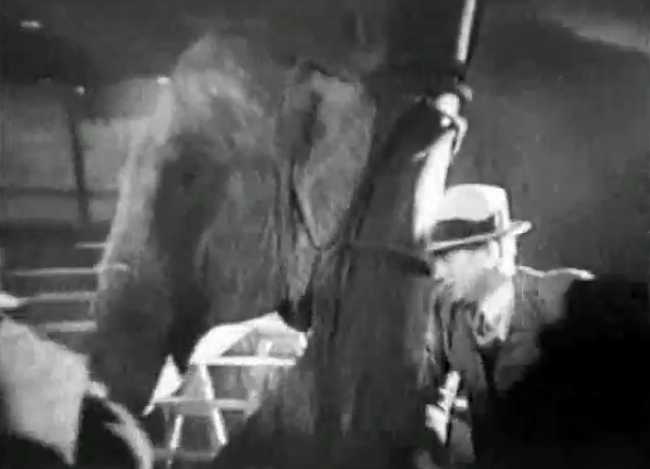
“Sorry to barge in, but I’m trying to pack. Has anyone seen my trunk?!” (elephant puns are never not funny, go to hell)
Star Leila Hyams manages to achieve a look that meets somewhere at a weird cross between Marlene Dietrich and Ruby Keeler, but also shines as a woman who’s trying to do her best in the most ludicrous romantic situations possible. The rest of the cast also acquits themselves quite well, with young Tommy Conlon managing to make his petulant kid character seem understandable throughout.
What I find interesting is the title of the movie, which makes it sound like a generic ‘woman’s picture’ from the period, which isn’t very true at all. What’s also interesting is that it’s never stated who the constant woman is, Marlene or Lou. Lou may spend most of the movie being the stone which allows the Underwood family to endure, but it’s Marlene’s ghost that haunts and taints all of their attempts to find happiness.
Perhaps in that regard, both are the constant woman, the best and worst of what a woman can offer. On the other hand, maybe they just couldn’t think of anything else consistent in the movie other than Lou’s appearance. “The movie may be three films packed into one,” someone said. “But that woman– she’s in all three!”

She’s also constantly well dressed. Not bad.
Proof That It’s Pre-Code
- Bastard kids!
- Extramarital sex!
- Speakeasy brawls!
- Poor circus safety regulations!
Gallery
Here are some extra screenshots I took. Click on any picture to enlarge!
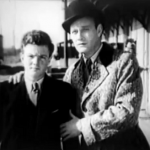

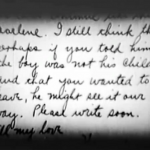
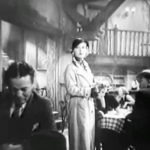

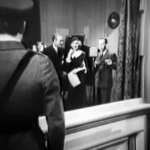
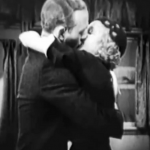

Trivia & Links
- The film was retitled a couple of times to try and bring in a bigger profit, so you may know it as Auction in Souls or Hell in a Circus. Also, when the film was reissued in 1938 as Hell in a Circus, seven minutes were edited out, never to be seen from again. I have to give the editors credit; for seven minutes being gone, nothing seems to be missing from the film.
- Lead actor Conrad Nagel was a co-founder of both the Academy of Motion Pictures Arts and Sciences and the Screen Actors Guild. Cyranos has more about him if you’re interested.
- You may remember starlet Leila Hyams from The Big House where she played Robert Montgomery’s sister, and she also had large roles in Island of Lost Souls and Freaks. You can read about her short but interesting career by A Trip Down Memory Lane.
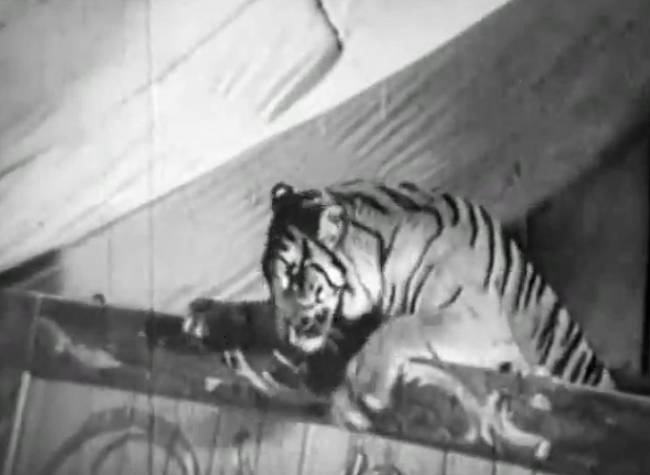
“Wherefore art thou, Romeo? I am but so hungry…”
- Lastly, this was based on a one-act play, Recklessness, by Eugene O’Neill. You can read the play here, though it is lacking in elephant stampedes. He wrote other plays that were the basis for other, more well known Pre-Code films like The Emperor Jones, Anna Christie, and Strange Interlude.
Awards, Accolades & Availability
- This film is available on YouTube and in the public domain.
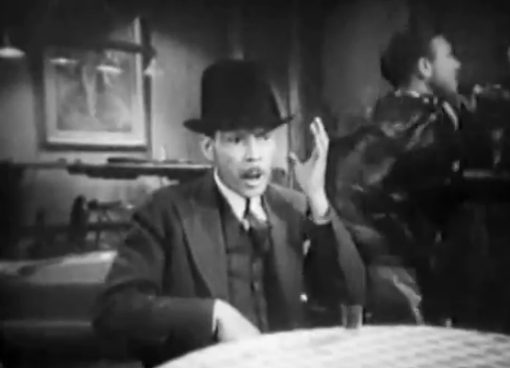 |
Comment below or join our email subscription list on the sidebar!Home | All of Our Reviews | What is Pre-Code? |



4 Comments
justjack · June 11, 2013 at 7:57 am
Can. Not. Wait.
This review touches on something you’ve mentioned before, that in the days Pre-Code, genre mash-ups were more likely to occur. In this case, it sounds terrific.
Last year I read Stewart O’Nan’s book on the great Hartford 1944 circus fire. The prologue mentioned several earlier fires, including one IIRC, would have occurred just around the time of this movie. I wondered if that fire may have been on the moviemakers’ minds. Unfortunately, my memory is hazy on when that previous fire took place, and the Hartford ’44 tragedy swamps the internets when it comes to “circus fires,” so I can’t easily check this.
Danny, I’m not sure what it is that separates this review from others of yours, but I especially enjoyed your writing in this one.
Danny · June 11, 2013 at 2:49 pm
I’m sure circus fires weren’t horribly out of the ordinary, since that always seemed like a good place for a disaster. I’d be interested in finding out of it this was inspired by a then-recent one or not.
And thanks for the kind words about the review, I enjoyed writing it a lot. Sometimes with the smaller films that aren’t so well remembered I find it easier to let loose. 🙂
Grand Old Movies · June 12, 2013 at 2:24 pm
you’re right – more norma shearer movies should have ended with a tiger wrestle – terrific post!
Danny · June 12, 2013 at 9:19 pm
Thanks! Much appreciated!
Comments are closed.